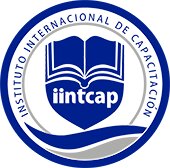Best Energy Regulatory Law Lawyers in Santiago de los Caballeros
Share your needs with us, get contacted by law firms.
Free. Takes 2 min.
List of the best lawyers in Santiago de los Caballeros, Dominican Republic
About Energy Regulatory Law in Santiago de los Caballeros, Dominican Republic
Energy Regulatory Law in Santiago de los Caballeros, and in the Dominican Republic as a whole, is a specialized area of law that governs the generation, distribution, and consumption of energy. This includes electricity, renewable energy sources such as solar and wind, and natural gas. The main objectives of Energy Regulatory Law are to ensure reliable energy supply, protect consumer rights, encourage sustainable energy development, and regulate the conduct of energy service providers. The legal framework is established by national laws, with local implications and enforcement in cities like Santiago de los Caballeros.
Why You May Need a Lawyer
Individuals, businesses, and organizations in Santiago de los Caballeros often seek the help of a lawyer experienced in Energy Regulatory Law for a variety of reasons. Common situations include:
- Setting up renewable energy installations or cryptocurrency mining operations that require compliance with energy regulations.
- Disputes over electricity or gas billing, service interruptions, or alleged unauthorized consumption (known as “energy theft”).
- Negotiating contracts with energy providers for commercial, industrial, or residential projects.
- Compliance with local and national regulations when starting or expanding a business that has significant energy needs.
- Responding to sanctions or fines imposed by regulatory bodies like the Superintendencia de Electricidad (SIE).
- Navigating the process for subsidies or incentives provided for clean or renewable energy projects.
- Environmental concerns tied to energy production, such as community input into large-scale projects, or environmental impact assessments.
- Legal obstacles in connecting new developments to the public electricity grid.
Local Laws Overview
The Dominican Republic’s energy sector is primarily regulated by General Electricity Law No. 125-01, which remains the foundational legal instrument governing the generation, transmission, distribution, and commercialization of electricity. The law aims at liberalizing the electricity market, promoting transparency and competition, and protecting consumer interests.
Key regulatory agencies include the Superintendencia de Electricidad (SIE), which monitors sector compliance and consumer protection, and the Comisión Nacional de Energía (CNE), which formulates policy, especially regarding renewable energy. Santiago de los Caballeros, as a major urban and industrial center, is directly affected by these regulations, including SIE’s local enforcement presence.
Recent regulatory trends have seen an increased focus on renewable energy, with specific incentives and requirements for individuals and businesses adopting solar, wind, and alternative power sources under Law 57-07. Additionally, there is growing scrutiny regarding energy theft and unauthorized grid connections, an ongoing concern in many Dominican cities, including Santiago de los Caballeros.
Frequently Asked Questions
What is the role of the Superintendencia de Electricidad (SIE)?
The SIE is the principal regulator of the electricity market in the Dominican Republic, responsible for overseeing service quality, setting tariffs, resolving disputes, and enforcing regulatory compliance.
Can I install my own solar panels in Santiago de los Caballeros?
Yes, individuals and businesses can install solar panels. However, you must comply with specific technical standards and registration procedures established by the CNE and SIE to access incentives and connect to the public grid.
What should I do if I experience unfair billing or service interruptions?
You should first lodge a formal complaint with your energy provider. If this does not resolve the issue, you can escalate the matter to the SIE or seek legal assistance.
Are there incentives for renewable energy projects?
Yes, Law 57-07 provides various incentives for renewable energy investments, such as tax breaks, import duty exemptions, and preferential access to the grid for renewable generators.
How are electricity tariffs determined?
Electricity tariffs are established by the SIE based on technical, economic, and legal criteria. Providers are required to follow these tariffs, and any unapproved charges can be challenged by consumers.
What is considered energy theft and what are its consequences?
Unauthorized connection to the energy grid or manipulation of metering devices constitutes energy theft, a serious offense that can lead to fines, criminal charges, and service disconnection.
Do businesses require special permits for high energy consumption?
Yes, high-consumption businesses may need to secure special permits and demonstrate compliance with technical regulations regarding safety and efficiency.
Can I negotiate a private energy contract with a renewable energy supplier?
It is possible to negotiate private power purchase agreements, especially for large-scale consumption, but these contracts must comply with local and national laws governing the sector.
What is a net metering system and how does it work in the city?
Net metering allows users who generate their own energy from renewable sources to feed excess electricity into the grid and receive credits or reductions in their electricity bills, regulated according to SIE’s guidelines.
How can I appeal a regulatory decision affecting my energy service?
You have the right to formally appeal decisions by your provider or the SIE. An energy regulatory lawyer can assist in preparing and presenting your case to the appropriate authorities.
Additional Resources
For more information and support regarding Energy Regulatory Law in Santiago de los Caballeros, you can contact:
- Superintendencia de Electricidad (SIE): Provides regulatory oversight, dispute resolution, and consumer protection services.
- Comisión Nacional de Energía (CNE): Responsible for policy development, renewable energy incentives, and project approvals.
- Local offices of electricity distribution companies: EDE Norte, which manages the electricity network in Santiago and the northern region.
- Dominican Association of Renewable Energy (ASOFER): Offers guidance and information on renewable energy opportunities and legal compliance.
- Local legal aid centers or bar associations: For referrals to energy law specialists.
Next Steps
If you believe you require legal assistance concerning Energy Regulatory Law in Santiago de los Caballeros, it is important to take the following steps:
- Document the details of your situation, including relevant contracts, communications, utility bills, or regulatory notices.
- Contact a lawyer or legal firm with proven experience in energy law. Ensure they are familiar with both national frameworks and local implementation in Santiago.
- Reach out to the appropriate regulatory body, such as the SIE or CNE, for clarification or to initiate a complaint if required.
- Review additional resources for self-help or background understanding of your rights and obligations.
- Schedule a consultation to discuss your legal options and determine the best course of action based on your circumstances.
Acting promptly and seeking specialist advice will help protect your interests, ensure compliance with all legal requirements, and provide the best chance for a favorable resolution to your energy law matter.
Lawzana helps you find the best lawyers and law firms in Santiago de los Caballeros through a curated and pre-screened list of qualified legal professionals. Our platform offers rankings and detailed profiles of attorneys and law firms, allowing you to compare based on practice areas, including Energy Regulatory Law, experience, and client feedback.
Each profile includes a description of the firm's areas of practice, client reviews, team members and partners, year of establishment, spoken languages, office locations, contact information, social media presence, and any published articles or resources. Most firms on our platform speak English and are experienced in both local and international legal matters.
Get a quote from top-rated law firms in Santiago de los Caballeros, Dominican Republic — quickly, securely, and without unnecessary hassle.
Disclaimer:
The information provided on this page is for general informational purposes only and does not constitute legal advice. While we strive to ensure the accuracy and relevance of the content, legal information may change over time, and interpretations of the law can vary. You should always consult with a qualified legal professional for advice specific to your situation.
We disclaim all liability for actions taken or not taken based on the content of this page. If you believe any information is incorrect or outdated, please contact us, and we will review and update it where appropriate.












